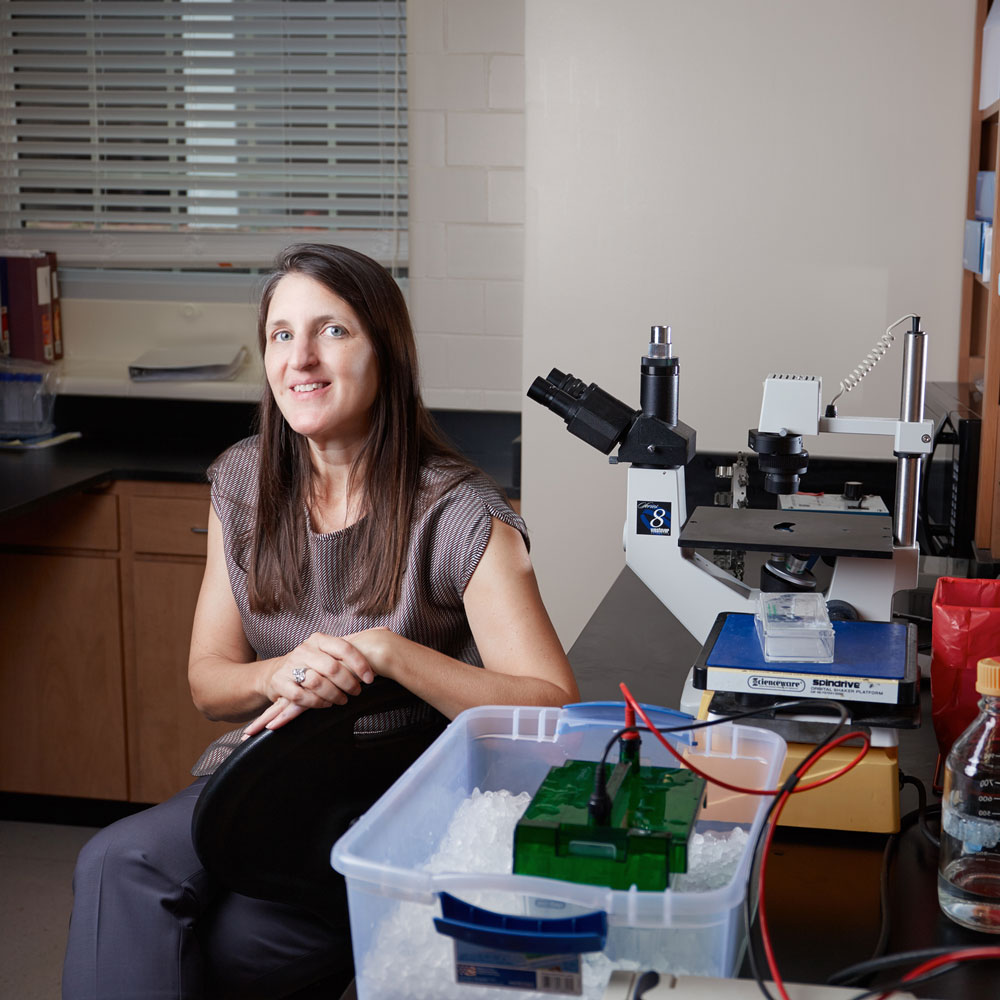
Muscles waste away when they’re not used, right? Turns out, it’s not that simple.
Elisabeth Barton, a physiology professor in the University of Florida College of Health and Human Performance, studies how muscles react to reduced load. Her latest discovery comes from an unlikely source: mice in space.
After two weeks of weightlessness in space, mice lost muscle mass in their legs, but not their cheeks. That makes sense, since they were still using their cheek muscles to chew. But when the space mice were fed a liquid diet that didn’t require chewing, their cheek muscles still fared better than their leg muscles.
“This suggests that the different responses of these two groups of muscles may provide clues to tackling lack of use clinically,” Barton explained.
The implications go beyond staying fit in space: Anyone confined to a hospital bed (or an office chair, for that matter) has a vested interest in maintaining their muscle mass. Understanding the set points for muscle loss in different parts of the body could also improve training regimens and inform how we deal with muscle loss from disease and aging.